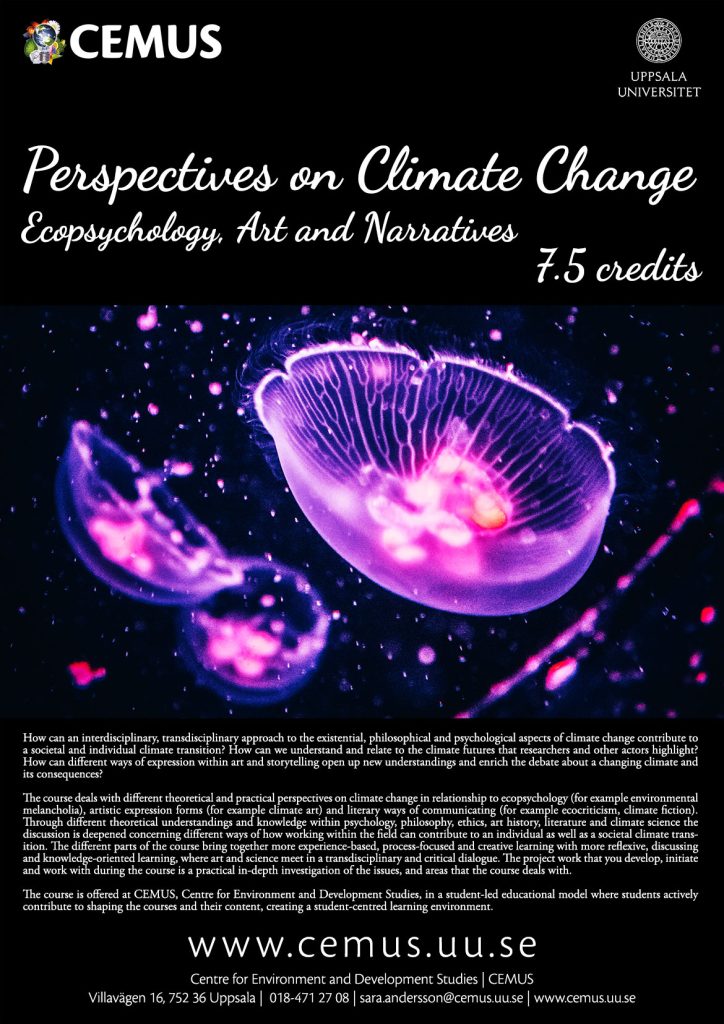About the course
How can an interdisciplinary, transdisciplinary approach to the existential, philosophical and psychological aspects of climate change contribute to a societal and individual climate transition? How can we understand and relate to the climate futures that researchers and other actors highlights? How can different ways of expression within art and storytelling open up new understandings and enrich the debate about a changing climate and its consequences?
The course deals with different theoretical and practical perspectives on climate change in relationship to ecopsychology (for example environmental melancholia), artistic expression forms (for example climate art) and literary ways of communicating (for example ecocriticism, climate fiction). Through different theoretical understandings and knowledge within psychology, philosophy, ethics, art history, literature and climate science the discussion is deepened concerning different ways of how working within the field can contribute to an individual as well a societal climate transition.
The different parts of the course brings together a more experience-based, process-focused and creative learning with a more reflexive, discussing and knowledge-oriented learning, where art and science meet in a transdisciplinary and critical dialogue. The project work that the student develops, initiates and works with during the course is a practical in-depth investigation of the issues, areas that the course deals with.
Syllabus
Link to syllabus.

